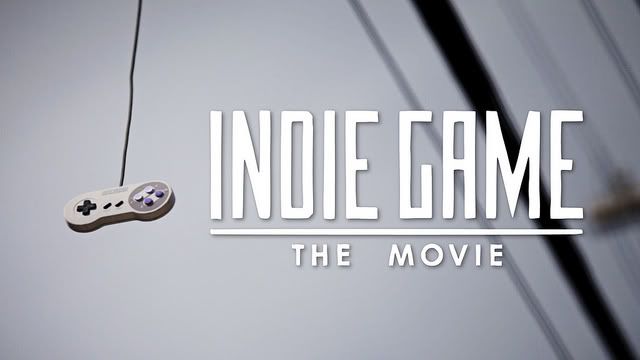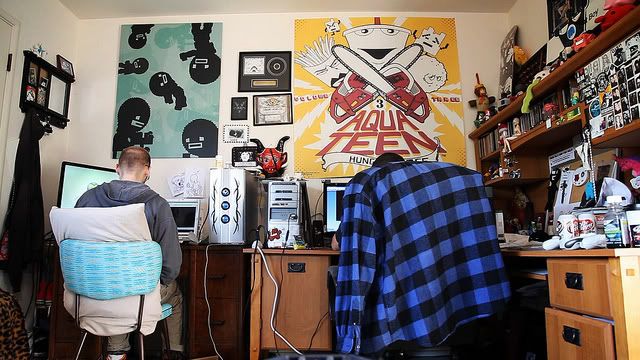This post has not been edited by the GamesBeat staff. Opinions by GamesBeat community writers do not necessarily reflect those of the staff.
Video games represent a variety of different things to different people: as products of entertainment, persistent online services, or escapes from the realities of the world. Sadly, what most people fail to consider is that video games also represent the people who make them.
Behind the technical trappings we see on screen (the polygons, bump-mapping, and animation) are untold hours of blood, sweat, and tears that have been poured into every aspect of a game’s creation. The corporate logo of publishers backing a multi-million dollar project usually masks these experiences, with perhaps a story here and there coming out if the situation is particularly bad.
Independent developers have no corporate public relations or funding to fall back on if things get rough. This means that the very livelihood of these people rests on either the success or failure of their games as is often the case with those who sacrifice everything they have to make their dreams come true.

Through the lenses of filmmakers James Swirsky and Lisanne Pajot, Indie Game: The Movie explores the incredible highs and the terrible lows of three such developers as they struggle to finish their games. Featuring Jonathan Blow, the creator of Braid, Edmund McMillen and Tommy Refenes, the creators of Super Meat Boy, and Phil Fish, the mind behind the perpetually delayed Fez, the film offers a raw, intimate glimpse into their creative processes.
Unlike the stereotypical representations of video games in other forms of mass-market media, Indie Game: The Movie is perhaps the first to offer a truly accurate portrayal of the realities of making games. These developers are just as weird, eccentric, and emotional — in other words, normal — as everyone else. No matter what you might think of them from their various interviews or controversies they might have generated around the web, it’s hard not to admire their passion and stubborn devotion to their craft.
Beautifully shot and backed by a subdued soundtrack, the film weaves a dramatic narrative among the developers as it jumps between specific moments of their game’s creation. Jonathan Blow is depicted as a mindful and meditative developer as he talks about the reasons why he made Braid, a game that went on to break sales records on Xbox Live Arcade in 2008 and to usher in what some consider to be a golden era of independent games. Compared to the others, Jonathan is practically a seasoned veteran, a man who’s paid his dues, but is still cautious of what the future might bring for himself.
Edmund and Tommy, the sole members of Team Meat, are the dynamic duo of the film: They are the textbook definition of being an underdog, with each sporting their own quirks and triumphs that make them extremely likable. Tommy, for instance, had to move back home with his parents in North Carolina during the creation of Super Meat Boy, and his only wish — were the game to succeed — was to pay off their debts. Edmund and his wife just wanted to buy themselves a new home. Strapped for cash as development on the game lingered, with both becoming physically and emotionally drained, I found myself rooting for them even though I already knew what the result would be. When Super Meat Boy debuted on XBLA in 2010, it shattered the one-day sales record previously set by Braid and has since gone on to sell over a million copies.

Team Meat working out of Edmund's room.
Phil Fish, meanwhile, is painted as a tragic figure: Due to a series of personal and professional setbacks, the unreleased Fez has been in development for over five years (but is now slated for an April 13 release). The film focuses mainly on the tension between Phil and his former development partner, Dyad creator Shawn McGrath (whose image is censored throughout the film), where the future of Fez depends on the two of them reaching some kind of contractual compromise. It’s clear from the bouts of anger and frustration that Phil wears his heart on his sleeve, which has sometimes led him into trouble and thus incurred the wrath of thousands on the Internet.
After watching Indie Game: The Movie in Palo Alto, Calif. last night, I walked away with a deeper appreciation of not just the people it focused on but of video-game developers everywhere. It’s too easy to forget that the game we have in our hands is a product made possible by ordinary people like Jonathan, Edmund, Tommy, and Phil, but this film certainly represents a step in the right direction.
